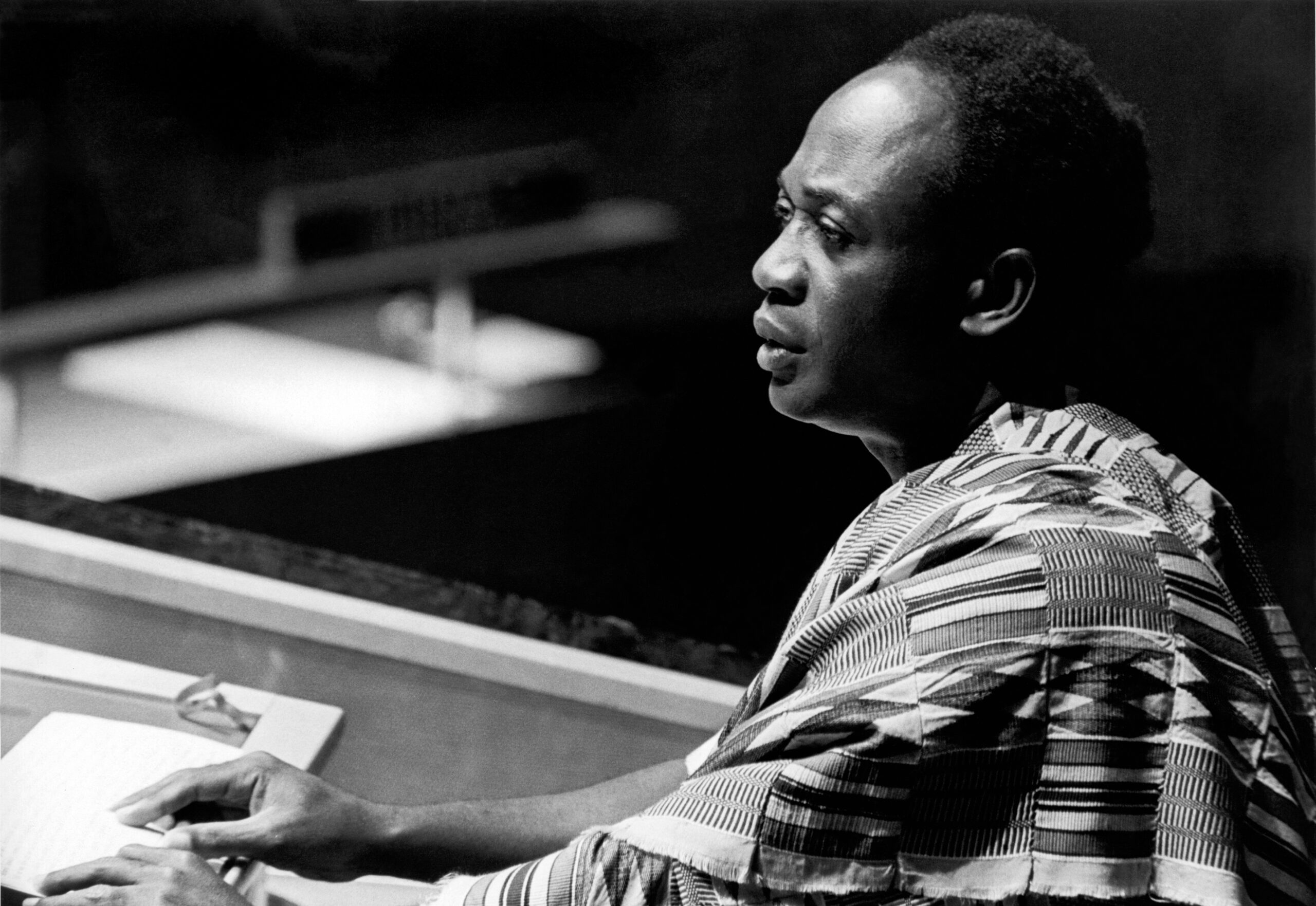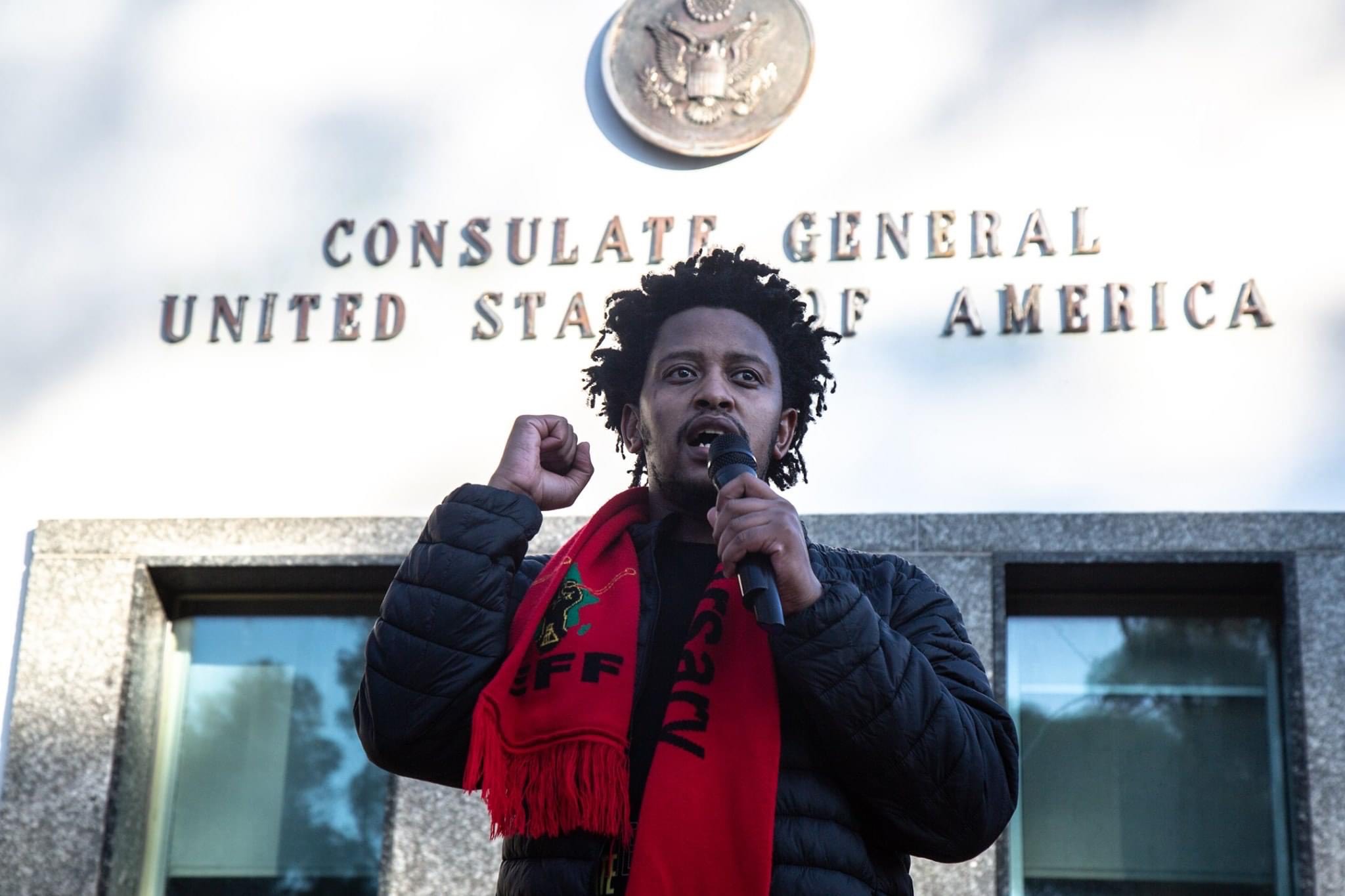South Africa is renowned for its revisionism, and numbing down days of historical significance into occasions that resemble festivity, rather than their revolutionary origin and essence.
African Liberation Day, a day that marked the gathering of leaders of independent states, and nations that were in the trenches of a war against colonialism, has not been spared from this culture of cowardice.
On 25 May 1963, an ideological breakthrough was made in Africa. The first prime minister of Ghana, Kwame Nkrumah, bellowed the inspiring words, that it is only through a united political African kingdom that our continent will achieve social and economic development.
Instead of organising around this clarion call, and echoing resounding calls for a united Africa, upon whose shoulders our future generations will stand, we saw a day that’s purpose was to rid Africa of the chains that shackle it, turned into yet another heritage day.
Accompanied by the nauseating, narrow tribal pride that defines the day upon which Castle Lager and boerewors is bought out of stock in South Africa, men and women pulled out their colourful traditional clothes, yet again mistaking a day of resistance for a fashion show.
African Liberation Day is not a day of celebration, it is a day upon which the path for liberation was declared.
It was on this day, when the Organisation of African Unity was founded, on the principles of African unity, co-operation and fierce solidarity towards a continent that is able to fend for itself against global imperialism.
When leaders of Africa gathered on this day, they gathered with an understanding that no African nation was free until all African nations were, at a time when the apartheid regime and British colonialists still held a firm grip on Southern Africa.
If we are to pay this occasion any respect, it is a day upon which black people ought to collectively spit in the face of poverty and squalor. It is a day that must remind Africans that ours is not a history of darkness, devoid of any meaningful contribution to the history of development, as many scholars of racism have proclaimed.
It is a day that must galvanise us all to pick up the spear left by Emperor Haile Selassie, Marcus Garvey, Queen Nzinga and mama Winnie Madikizela-Mandela.
For far too long, Africa has been a continent characterised by the deliberate underdevelopment brought upon it by the brutal Atlantic slave trade that fractured African society and shipped out men, women and children to build the economies of colonial Empires.
It is a character that remains with us, and sees black people gunned down mercilessly in the US, subjected to inhumanity in Palestine and mocked in Eastern Europe.
It can therefore be said without any fear of contradiction, that it is upon the flesh of black people, that modern humanity stands. African Liberation Day therefore represents an occasion upon which leaders of our continent demanded that Africa rise up, and rid its shoulders of the burdens of exploitation.
Since the epoch of colonial conquest, Africa has been the bedrock of development of the rest of the world, through extraction of human beings for slavery and the parasitic theft of the wealth of our land which has and continues to serve as the basis for industrialisation all across the world.
The development of the world has long been dependent on the underdevelopment of Africa, and the theft of its people, it’s economy and meddling in its political systems, crafting them into nations that require permanent supervision. This has been engineered by centuries of white colonialists and settlers alike, whose interests are fuelled by racism and capitalist greed.
It is the very destruction of the fibre of what it means to be African, that has placed our glorious continent where it is today. It is the nefarious hand of neo-colonialism, that has continued to sponsor conflict in Africa, set up army bases in African states and perpetuate division among Africans all to serve their interests of wealth extraction.
The current crop of African leaders, and the political system that defines African life, is a product of the agenda of purchasing puppet leaders by the West, who serve nothing but self-interest and an agenda that will never uplift the land of our forebears from permanent juniority.
It is this crop of leaders, who fail to diagnose the problems of Africa, and lack the necessary fortitude held by the likes of Nkrumah, Thomas Sankara, Patrice Lumumba and Robert Mangaliso Sobukwe, to refuse to repay nonsensical colonial debts and unite Africans behind one agenda.
These purchased tin-pot dictators bask in the narrow glory of leading African states that cannot be distinguished from their pre-independence conditions, and are defined by infantile brutality and childish loyalty to former colonialists.
These leaders who mutilate our people and make bold declarations while their economies fall apart exhibited their sheepish-nature, when they gathered like desperate children at the feet of the president of France, to receive instructions on how to rebuild their own economies after the Covid-19 pandemic.
It is this undermining of Africa that Ahmed Sékou Touré was opposed to.
It is the state of South Africa today, that those who gathered in Addis Abbaba 58-years ago sought to change and never see in their lifetimes again.
A nation whose wealth remains in the hands of a few conquerors, that does not control its own land, where a majority of its people remain in apartheid-designed settlements is not what Julius Nyerere imagined almost a century after he met with his peers to chart our future.
One can even dare say, in the current state that the Republic of South Africa is in, it would not deserve an invite to a gathering of that nature, in the same way the racist Union of South Africa was snubbed.
There is no meaningful contribution that a country in doubt about expropriation of land without compensation, a country in the process of privatising aviation, energy generation and collapsing its own weapons manufacturer, can make to discussions about African independence.
As a generation we must therefore rescue African Liberation Day from the liberalism it is drowning in, and reaffirm its position as a Pan-Africanist moral compass.
We must be honest in our reflection of what defines the African continent, in order to understand what it’s future must look like.
This requires a programmatic agenda of first building an ethos of solidarity, and this begins with us intensifying the call for the removal of all colonial borders, which serve no purpose but entrenching division between countries with a common history of conquest.
All self-respecting leaders of Africa must rally behind the call for the collapse of all colonial borders and the establishment of one continent, with one economy and one president. Because to make the mistake of thinking our problems can be resolved by secluded nationalism, is to doom us to never-ending servitude to the West.
The problems of Africa are not scarcity of jobs or resources. The problem of Africa is the monopolisation of wealth, and the reserving of menial labour for African people, while those who prosper off our poverty control the heights of our economies.
We must passionately resist any presumption that our poverty is caused by fellow poor Africans, and that any African person can pose a threat to the nothing we have.
African people have nothing to steal from us, because our very selves belong to those who have dominated Africa since time immemorial. It is only through our unity that our lives will change, not through defending our rights to be the only servants within our borders.
We must echo the call for a competent and responsive stand-alone African army, that will counter all terrorist and imperial threats, which promote instability in the continent, violate human rights and participate in endless secessionist agendas that serve no meaningful purpose.
We must call for a pan-African parliament that has the necessary legislative power to intervene in African nations where democracy is undermined, and power is usurped through coups or retained through violent and suppressive means.
It is only through a sincere effort to relinquish power by those in power today, and a meaningful reconstruction of African statehood and citizenship, that Africa can become a true home to all who face racial discrimination across the world.
Africa must rise up and unite, in order to decisively break-away from the grip of imperial power that defines all of our lives and seeks to further our recolonisation.
As a continent, we must mirror the brave revolutionaries of Haiti. Africa must be a haven for the rejected, abused and exploited black people of the world. The resources of Africa must never be refused to a fellow African, because socialism is in the DNA of African people.
This can only be done in an economy based on our own mineral wealth and co-operation between African nations in commerce, cultural exchange and military force, that Africa will assume its rightful place as a global superpower.This is how we give meaning to Africa Day, not through colourful clothing and pretentious ceremony, but through a determined and radical agenda for liberation.




